Can "Xenophobic" Japan lure Immigrant Workers?
U.S. President Joe Biden in May,made remarks on Japan’s stalled economic growth,during a campaign reception. “Why is Japan having trouble?… because they’re xenophobic,” he said. Regrettably, in my opinion, we can not say that Biden is totally wrong.10 years ago, a private-sector panel of experts proposed that “expanding the use of foreign labor is an option” as a measure against population decline. 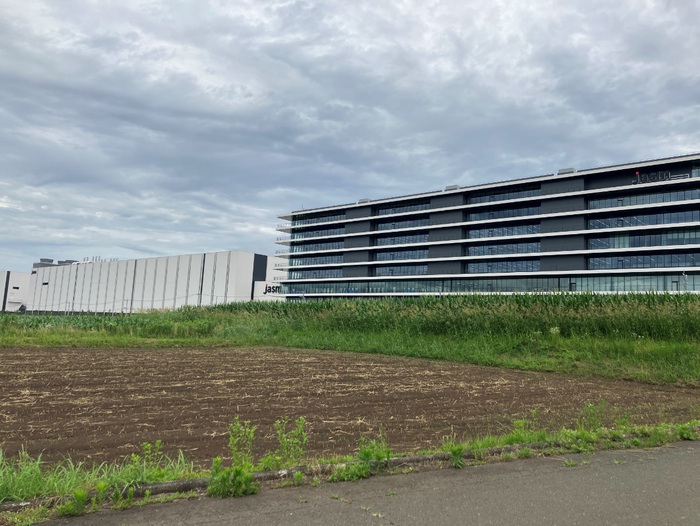
Photo)Rising land prices near the TSMC subsidiary JASM has forced farmers to withdraw from their businesses.
However, the word “immigration” was removed from the final report because “the Japanese prime minister’s office is dominated by purists,” according to a leading Liberal Democratic Party member. 10 years on, depopulation is increasingly becoming a serious issue.
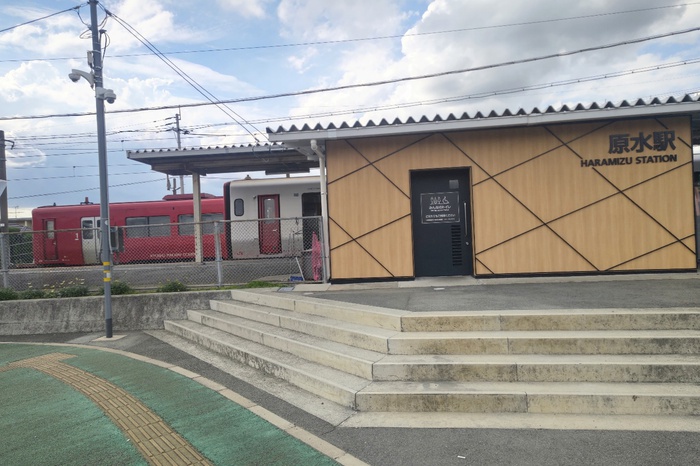
Photo )The closest unmanned station to TSMC’s subsidiary gets packed with commuters everyday.
Haramizu Station sits in Kikuyo town in Kumamoto City, Kumamoto Prefecture. The small unmanned station is overflowing with commuters on weekdays because it has become the nearest station to Taiwan Semiconductor Manufacturing Company subsidiary Japan Advanced Semiconductor Manufacturing. About a 10-minute bus ride from this station is the “Semicon Techno Park” where the chip-related factory giants gather.
Many chip factories,including Sony, have already been located here. Since TSMC’s decision to expand into the area, there has been a flurry of chip-related plant constructions and capital investment. Some estimate that the economic effect of TSMC's expansion in Kumamoto Prefecture will amount to 6.9 trillion yen over 10 years. While there are high expectations for economic growth, the rapid changes are also spurring confusion in the local community.
◆Worries over children
Traffic volume has increased sharply in and around the town of Kikuyo. A resident nearby said that he was worried about his child going to school. Cars go on sidewalks because the street is only about one lane wide. His neighbors and him are discussing asking the police if they can make the street one-way at certain times of the day, but he said that it is not easy. On the other hand, he did say that there have been positive changes such as the roads around the station being developed.
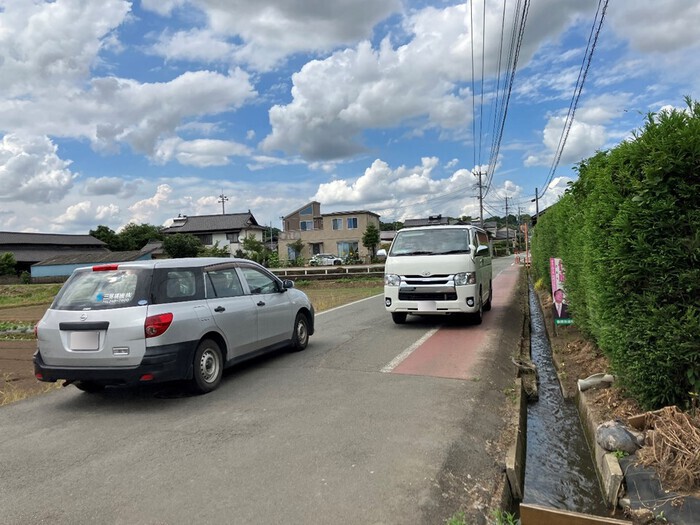
Photo)A car drives on the sidewalk (photo taken on a Saturday).Locals say that there is heavy traffic on this street on weekdays where elementary school students walk to schools.
It was not only this resident who was concerned. A farmer told Nippon TV that “everyone’s worried that there may not be enough underground water if JASM builds a second factory.” Kumamoto Prefecture is proud of its groundwater. Kumamoto City’s official website writes that “it is the only city in Japan where groundwater is used as the only source for tap water” for its population and it makes it a “world-class groundwater city.” However, the water level has been declining in recent years, prompting the city to take various measures. One of them is what they call “groundwater irrigation using rice fields.” The fields are used to store rainwater, which allows large amounts of water to seep into the ground. Subsidies are being paid according to the span of time and the area of the fields that would be used for the measure.
The advancement of JASM and other chip-making factories, which use an immense amount of groundwater, come amid local’s growing anxiety over water.
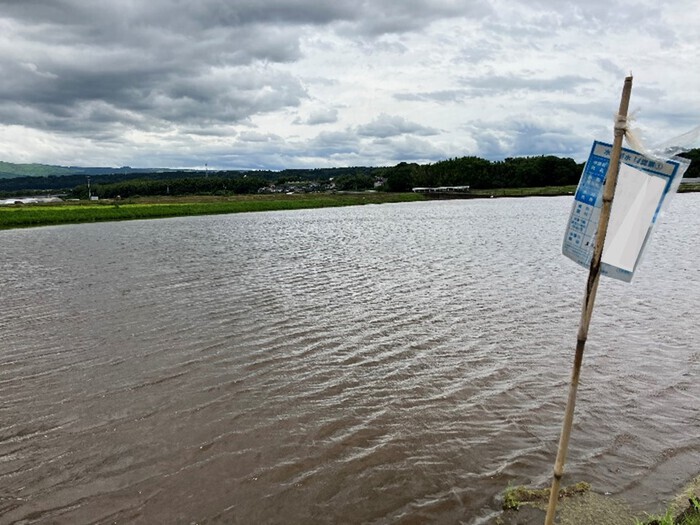
Photo)A rice field stores water to increase groundwater 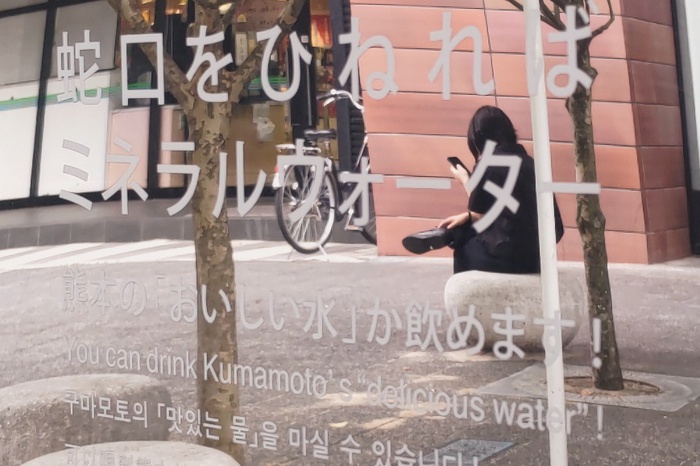
Photo) A writing on a water cooling device in front of Kumamoto Prefecture reads “turn on the faucet for mineral water.” Locals living in a city that boasts its water quality remain concerned.
◆Is the city foreigner-friendly?
JASM is not the only company in the area that has employees from countries around the world. Factories of behemoths such as Sony, Tokyo Electron and Pillar Corporation are also gathered in the area.
A man who works for one of the companies and was on a three-month business trip from Taiwan said he is having difficulties when he eats out. He was in the area to learn how to combine parts made in the Japanese factory with parts made in the Taiwanese factory.
His accommodation during the trip was a business hotel in Kumamoto City. It takes him about an hour to commute each day transferring trains, buses and trams. He can speak Japanese, but had issues reading Katakana. (Japanese has three different character, Kanji, Hiragana, and Katakana). He said he was “stumped” by the large number of Japanese Katakana that was used in restaurant menu.
It is said that new apartments were being built trying to accommodate the increasing number of immigrants from Taiwan and that the number of foreign nationals had risen sharply. It was expected that boards and signs in Kumamoto City would be available in various languages, but such visible changes are yet to come.
Electronics retailers in front of the station do not have multilingual signs that suggest the store is foreigner-friendly. However, they do say that there are many foreign customers. The workers said that they use small smartphone-size interpretation devices that were put up everywhere in the stores. The device displays translated sentences of what the speaker said, facilitating conversations between those who speak different languages. 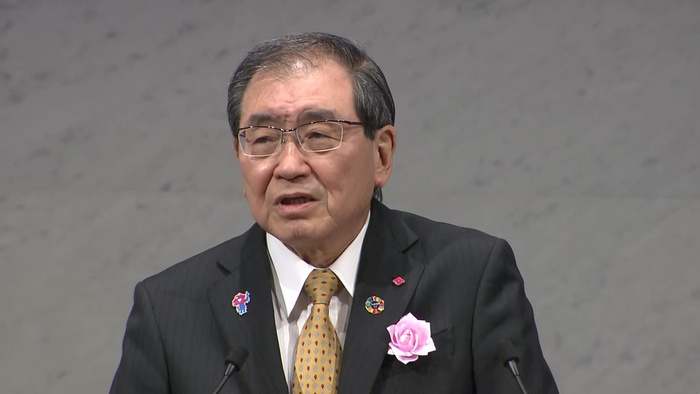
Photo)Japan Business Federation sets up committee for “Policies regarding foreigners” Tokura speaking on the establishment of new committee (Tokyo - May 31, 2024)
The Japan Business Federation (Keidanren) set up a committee in May to advance discussions on the acceptance of foreign nationals. Keidanren Chief Tokura Masakazu often quotes Swiss author Max Frisch who wrote “we asked for workers; we got people instead.” When workers are called in from overseas to tackle labor shortage, the country who invites them only deems them as “labor power.” However, the workers who actually come are, of course, people who have families and lives.
Living in a foreign country means that both them and their family must deal with various issues such as linguistic ones, difference in lifestyle and rules, and access to medical care. “ If we Japanese try to invite foreign workers only by thinking like, ‘we need more people in this field so we need to hire this person,’ they will be seen through. The salary in Japan is not high compared to other countries, especially due to the depreciating yen. It is paramount to create an environment so that Japan can “be chosen” by these people,” said Tokura on the establishment of the committee. The central government is following suit. On June 21, the Japanese government adopted policies toward a “realization of a society of harmonious coexistence with foreign nationals.” Measures include those on Japanese linguistic education and consultation service offered for foreign nationals. The severe labor shortage is urging both businesses and the government to come up with countermeasures. It is necessary to examine as many precedents as possible to realize “coexistence” with as little burden on both parties as possible.
https://news.ntv.co.jp/category/economy/dd95386e8dec4a739a12866a739a1549
Written by Ando Sawako, Nippon TV Economic division


